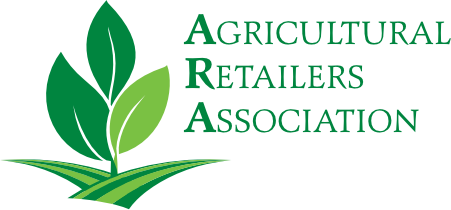Identify New Business Opportunities With Field-Level Sustainability Insights
Oct 10 2023
Helping growers invest in farming practices that protect the land they depend on is an integral part of an ag retailer’s role. But now that an increasing number of food and pet food companies are seeking sustainably grown ingredients, others are interested in that investment, too. It’s an emerging market that, with the help of comprehensive sustainability insights, retailers and their customers can capitalize on.
What Makes an Ingredient “Sustainable?”
In a recent DTN® survey, we asked agribusinesses which words they would use to define sustainability. The answers varied, but four themes emerged: preservation, longevity, profitability and responsibility. As we expected, these themes fit well with the elements that sustainability definitions usually include — environment, economy and society. The environmental part of the definition is what ag retailers should take an interest in. Here’s why.
Most consumer packaged goods (CPG) companies looking to source sustainable ingredients typically have their own definition and standards of what they consider to be “sustainable.” However, part of their environmental goals usually includes reducing carbon emissions from their value chain, as this contributes to the company’s overall carbon emissions. Sourcing grain grown with farming practices that emit fewer greenhouse gases than conventional practices can help with this reduction in emissions.
How To Take Advantage of the Emerging Sustainable Grain Market
The good news for your customers is that this increasing need for sustainably grown grain creates the opportunity for potential low-carbon grain premiums. There are also government grants available that incentivize the use of sustainable farming practices. So not only are growers reaping the environmental and production benefits of sustainable ag, they are also gaining financially by making the switch to more sustainable practices. And that’s good news for ag retailers, too.
You can take advantage of this new market for sustainable grain by connecting with growers who are interested in reducing their carbon emissions — and are able to do so by using the sustainable inputs and services that you offer. For example, more efficient use of nitrogen fertilizers can reduce the amount of nitrogen lost to the environment through nitrous oxide emissions and ammonia volatilization (nitrous oxide is a greenhouse gas).
Additionally, by encouraging the use of soil or plant testing, you can help clients determine the nutrients that are actually needed and reduce the application of excess nitrogen. Some other examples of sustainable farming practices include changing irrigation methods, growing cover crops paired with no-till practices and using precision ag technology to reduce inputs.
Easily Find and Connect With Sustainability-Focused Growers
Identifying which growers see new opportunities within sustainable agriculture can be challenging, and that’s where EcoField™ data from DTN can help. EcoField data offers unmatched field-level sustainability practice data across a broad geographical area in the U.S. It’s a must-have resource for retailers who want to enhance their customer bases by capitalizing on the emerging sustainably grown grain market.
With EcoField data, you can gather insight into the farming practices of producers across 34 states for 19 of the most prominent U.S. crops. EcoField data not only delivers these critical insights; it also provides the information you need to identify, sort and connect with growers using those practices. The comprehensive dataset includes details for more than 50 sustainability indicators and their impact on carbon emissions, and you can customize the data according to the specific sustainable practices that best fit your products and services.
If you’re interested in the sustainable grain market, EcoField data is a valuable tool for you to better segment audiences and develop more custom and impactful messaging. To further explore how EcoField data can lead to more efficient and effective sustainability-related sales and marketing efforts, visit dtn.com/ecofield-data.
